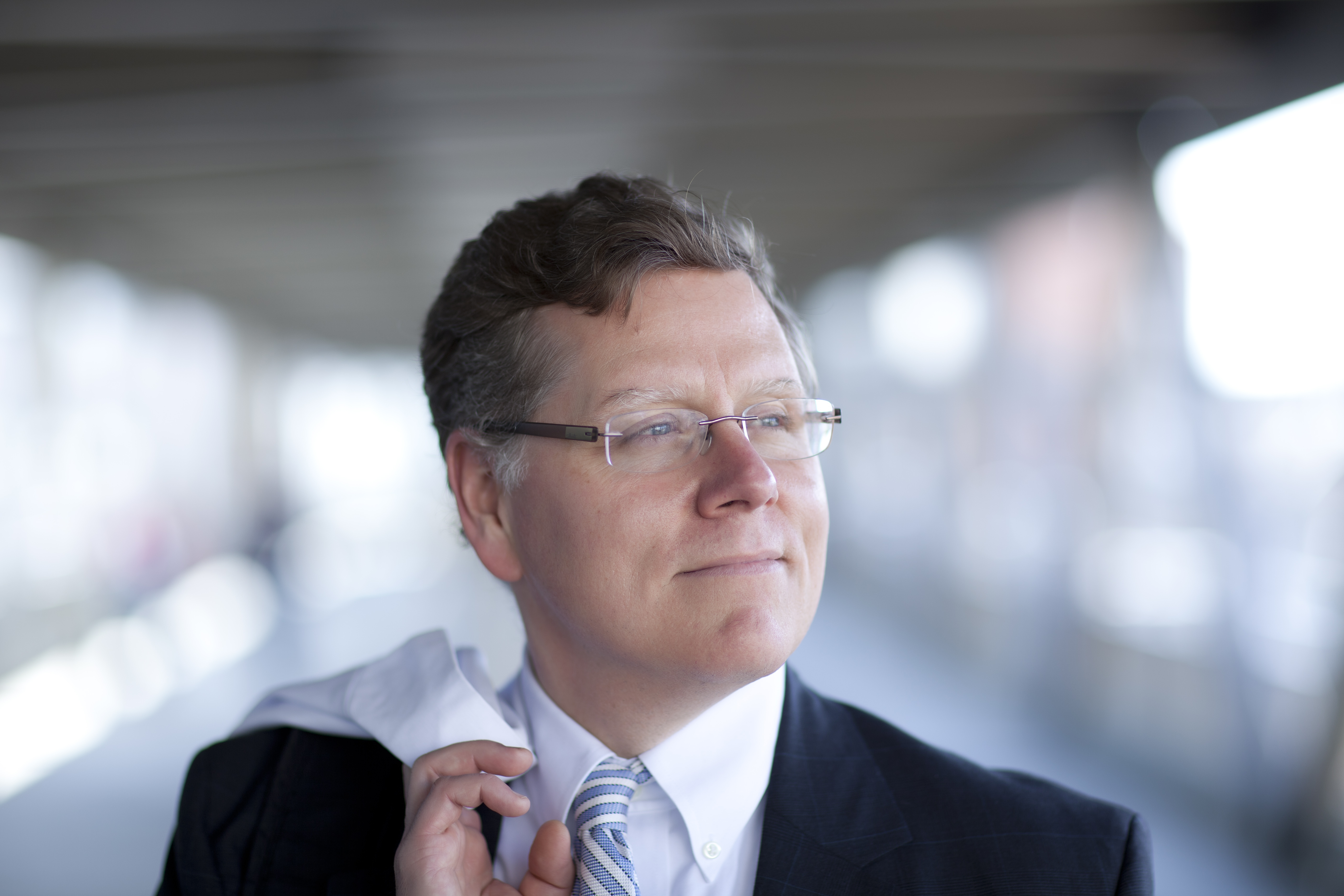Matthew G. Ewend, MD, FACS, Van L. Weatherspoon, Jr. Eminent Distinguished Professor and Chair, UNC Department of Neurosurgery and UNC Lineberger member, has been awarded this year’s H. Fleming Fuller Award.

Ewend called the honor a highlight of his 17 years at UNC.
“When I look down the list of past winners, I see what I’d call the Hall of Fame of UNC,” Ewend said. “I’m thrilled to join the club.”
The award was established in 1987 to honor the legacy of Dr. H. Fleming Fuller, who served as a founding member of the North Carolina Memorial Hospital Board of Directors. It is given annually to the member of the medical staff who most embodies Fuller’s lifelong commitment to patient care, teaching and community service. Nominations are made by UNC Health Care employees, members of the medical staff and resident physicians. The winner is selected by the Fuller Award Committee.
In his introduction of Ewend, Tony Lindsey, MD, UNC Hospitals’ Chief Medical Officer, recounted praise Ewend has received from patients.
“Much of Dr. Ewend’s academic work is directly focused on patient outcomes, and his personal patients always have great things to say about him. They uniformly say he is thoughtful, patient, even tempered and respectful,” Lindsey said.
While he has many leadership, teaching and research responsibilities, Ewend said being honored for his commitment to patient care is especially gratifying.
“My field of neurosurgery is stereotypically known more for technical skill than bedside manner,” he said. “My goal each day, however, is to give my patients – many of whom are suffering with brain tumors – a sense of hope despite the difficult diagnoses that they carry.”
He achieves this goal through a mix of honesty and compassion, helping patients clearly understand both their condition and the options available to them.
“I want to bring my patients the genuine hope that comes from offering first class, technically excellent treatment, research aimed at finding new treatments when the current options are limited and opportunities for patients to join the fight against the disease itself, rather than be victims” Ewend said.
Ewend credited Fuller for his work as a pioneer, both at the UNC School of Medicine and as a founder of the NC Cancer Society.
“Dr. Fuller and the North Carolina Cancer Society were instrumental in changing a cancer diagnosis from something met with great fear to something that carries hope for a possible treatment. What he did back then was much more difficult and more pioneering what any of us are doing now, he set the path that we are following.”
The culture and resources of UNC, he said, have been instrumental to his successes, providing opportunities for physicians and scientists to collaborate and achieve incredible results, such as the work he and UNC ENT surgeon Craig Buchman, MD, did last year to bring hope to the family of Grayson Clamp.
“Grayson was born without nerves connecting his inner ear to his brainstem. His parents were told that he would never hear. When Craig Buchman and I partnered to create a clinical trial to implant electrodes directly onto the surface of Grayson’s brain to deliver sound, we harnessed the combined resources of UNC School of Medicine and UNC Hospitals to give his family real hope that he could lead a more normal life,” Ewend said.
The work of that trial has now brought hearing to four more children and, Ewend said, they are waiting on confirmation on a fifth patient.
For patients with only modest options, Ewend stressed the importance of making certain that they feel like they are contributing in a meaningful way to helping others. For example, each brain tumor patient is asked permission to submit their tumor for advanced genetic sequencing as part of a program called UNCSeq. Ewend said there are two reasons to do this. First, it may help develop better treatments for future patients. Second, if the sequencing reveals a weakness in a patient’s tumor for which there is a treatment available, that information is given to the treating physician.
Ewend said that when he explains this to patients, he has never gotten to reason number two.
“They are on board when I tell them that it could help others, before they even hear that it could have a direct impact on their own care. I think that makes them feel like they are part of a larger fight, not just victims of a disease,” Ewend said.
As Ewend closed his remarks, he urged his colleagues to maintain the culture of UNC Health Care.
“When people think of us, I hope they think of a place that combines both cutting edge research and gentle, honest bedside manner. If we were to lose that, I and most of my colleagues would lose our ability to provide hope to critically ill patients.”
